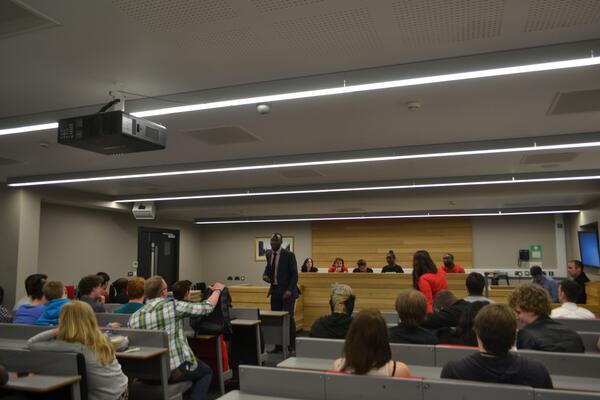Zero-hour contracts have been criticised from all sides of the political spectrum, being debated on the most recent episode of the BBC’s Question Time whilst the current Business Secretary, Vince Cable, admitted that they “can offer limited employment rights and job security”.
 Yet the University of Lincoln Students’ Union bucked the trend on Monday when they declined to pass a motion that would have banned the use of zero-hour contracts for its staff.
Yet the University of Lincoln Students’ Union bucked the trend on Monday when they declined to pass a motion that would have banned the use of zero-hour contracts for its staff.
Calum Watt, who proposed the motion, praised the SU for introducing proper pensions for workers at the recently acquired Shed pub, but was concerned that positions advertised by the union for new staff were advertising zero-hour contracts, which he claims “have an overall negative impact on people’s living standards.”
He also referenced the judgement of NUS Scotland, whose president noted that “flexibility in the workplace is important, particularly for students, but there should never be a trade-off between flexibility and security or rights at work.”
Linford Butler, Officer for the College of Arts and voting member at SU councils, affirmed that the contracts are “a form of employment which favours the employer over the employee,” yet also noted that as a student ambassador for the university, he was also employed under a zero-hour contract which served its purpose better than a traditional, fixed term arrangement.
The President of the SU, Dan Sam, informed the council that the recent NUS national conference refused to ban zero-hour contracts, as while they are “bad for workers”, they allow students to work in hours that fit around their changing university and assignment timetable.
It was for these reasons that the council chose to reject the motion, by four votes to three (with three abstentions), and allow the advertised positions for both Shed and SU staff to continue with zero-hour contracts unhindered.
